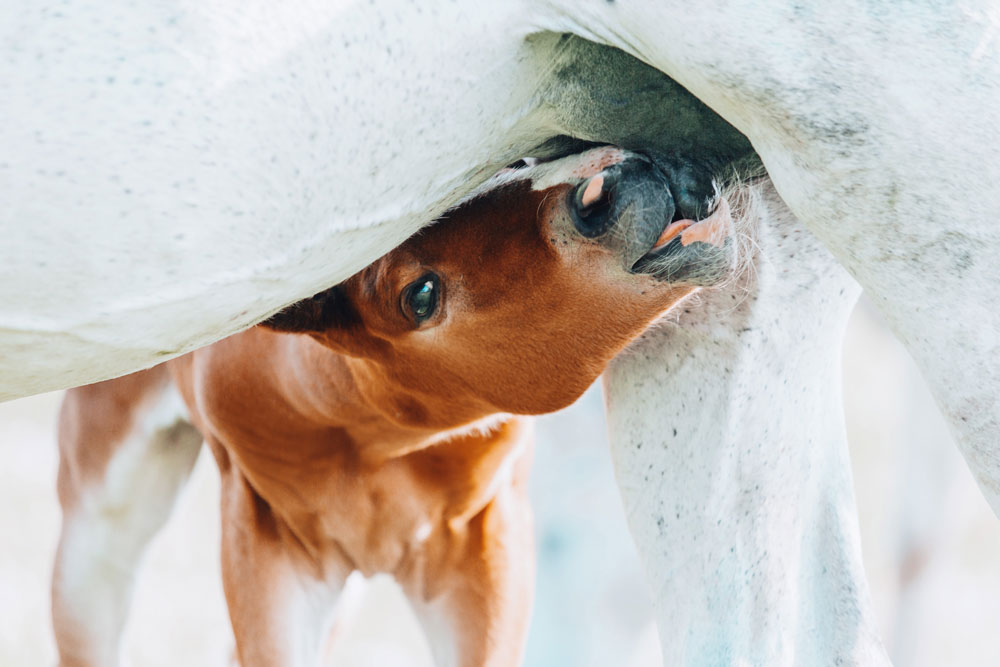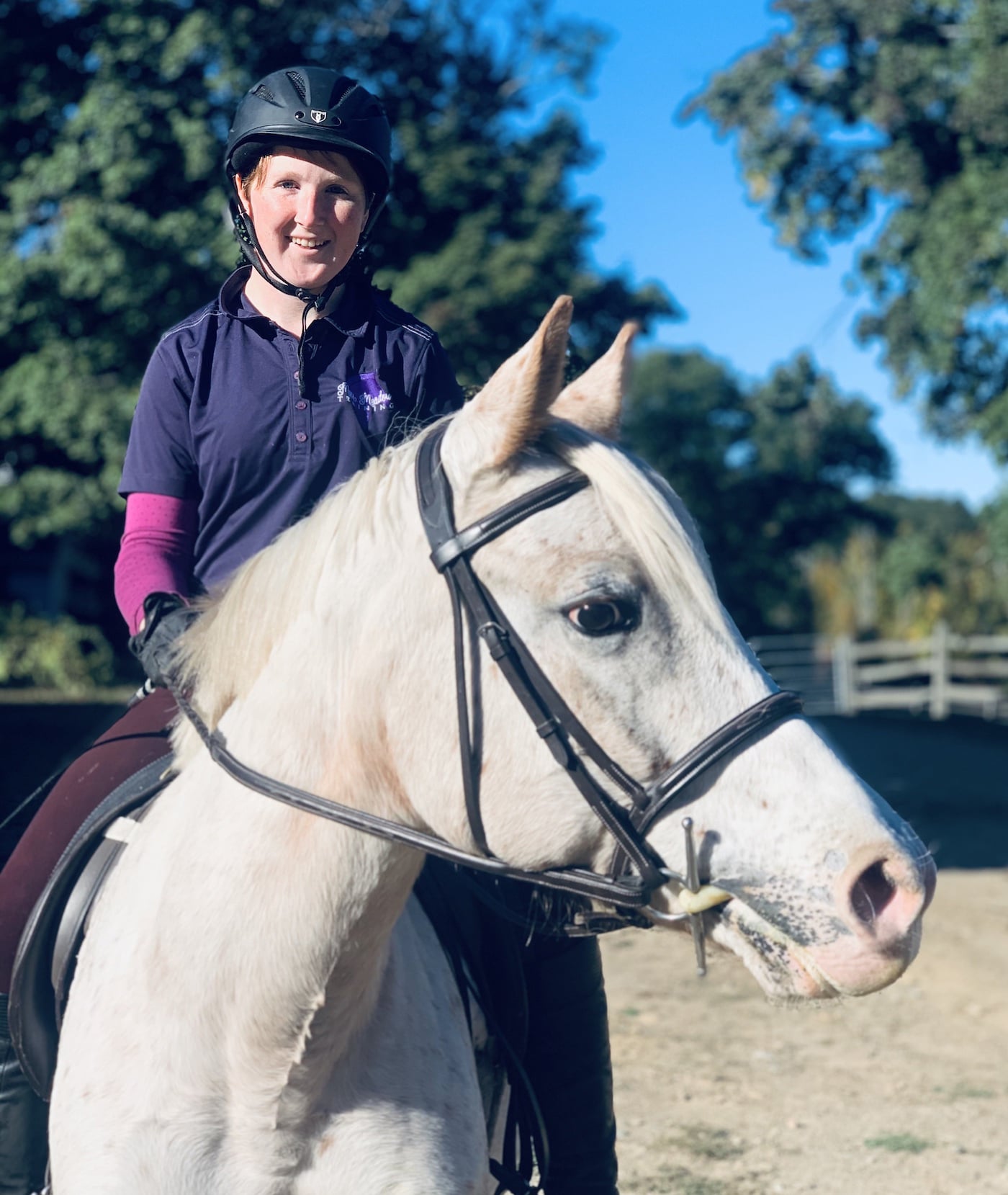Freedom Health President John Hall was recently featured in article in the USDF Connection on equestrian companies sponsoring professional riders. Thanks to the USDF for allowing us to re-publish the article here.
 Short on support? Find the help you need for the dressage activities you want
Short on support? Find the help you need for the dressage activities you want
BY SHARON BIGGS
Some lucky dressage riders seem to have it all. They train and show talented horses purchased and maintained by well-to-do owners. Their saddle pads sport the logos of corporate and other sponsors, who provide them with cash, product, or both in exchange for the marketing exposure. Their faces appear in advertisements for their sponsors’ goods and services.
You, meanwhile, may be struggling just to pay the board bill—or perhaps you can’t afford a horse at all, and nobody’s knocking at your door with offers of horses to ride and compete. Perhaps you’re an aspiring judge or instructor, daunted by the costs of those licensing or certification programs. Or maybe you belong to a dressage club with big dreams—such as hosting a US Equestrian Federation-licensed/USDF-recognized show or a clinic with a Big Name Trainer—but little capital.
Those fortunate, well-funded riders don’t all come from money. Many learned along the way that, with sufficient drive and dedication, they could obtain support in their quest to achieve their dressage goals. In truth, funding is available for talented riders of all ages, aspiring judges and trainers, and even USDF group-member organizations (GMOs). For those with something to offer a sponsor, there are companies willing to provide free product. Finally, there are individuals who like to support the sport of dressage by mounting talented riders on talented horses. In this article, we’ll explore the major funding and support avenues available to serious dressage enthusiasts and to GMOs.
The Dressage Foundation: Premier Funding Source
Not to be confused with the USDF, The Dressage Foundation is a separate entity created exclusively to support our sport in the US. It has close ties to the USDF, however, having been founded in 1989 by Lowell Boomer, who was also the founding organizer of USDF in 1973. TDF is headquartered in Lincoln, NE, where the USDF also was based until its move to Kentucky in 2006.
“TDF is a stand-alone foundation, not a part of USDF, USEF, or any other equestrian organization,” says TDF administrative director Jenny Johnson. “However, we do provide funding support to USDF, its GMOs, and members; as well as to other dressage and equestrian organizations. In the past twenty-plus years, TDF has awarded over one million dollars in scholarships and grants to dressage riders and enthusiasts from across the country, thanks to the generosity of our donors.”
TDF offers a smorgasbord of largesse. A sampling: GMOs can apply for Continuing Education for Dressage Instructors funding: five annual grants of $1,000 to be used for instructor education, including the USDF Instructor Certification Program. Promising young dressage riders aged sixteen to 21 can apply for the Olympic Dream Program, with the four annual recipients winning a chaperoned two-week trip to Europe, during which they visit famous trainers and attend shows. To advance their dressage educations, adult amateurs can apply for help from the Carol Lavell Gifted Fund—up to nine $1,000 scholarships per year, one for each USDF region. Dressage instructors can apply for one of six annual grants of up to $1,500 to put toward obtaining USDF instructor certification. The Edgar Hotz Judges Endowment Fund provides financial support of $800 per USDF region annually for USEF-licensed dressage judges and USDF “L” program graduates to use toward their continuing education. And there are some high-dollar grants for aspiring high-performance riders and horses.
The TDF receives many more requests for grants and scholarships than it can fulfill, so how can you improve your chances of being chosen?
According to TDF development director Melissa Filipi, one of the biggest reasons for disqualification is incomplete or late applications. “The application process can be time-consuming, so begin the process early so that you don’t skim over important details,” she says. “Read all of the information and follow it closely. Make sure that your goals match the purpose of the funds. Some applicants will stretch the interpretation of the grant or scholarship, but those who closely match the purpose of the fund will score better with the [review] committee. And make sure you fit the requirements of the fund. Proofread the application so there are no typos or mistakes. Your application should look professional and not thrown together at the last minute. Because our committee members are busy people, keep your explanations simple and relevant, but make sure it shows why you are the best candidate for this grant or scholarship.”
For a complete list and application information, visit
dressagefoundation.org.
USDF: Funding for Education
The USDF itself offers three scholarships and grants. The USDF Youth Convention Scholarship helps to defray the costs of convention attendance for one or more deserving young USDF participating members. The scholarship is supported by funds raised at the popular silent auction held during each convention, with companies and individuals donating everything from tack to trips.
Another convention grant, the Ruth Arvanette Memorial Fund Grant, similarly helps to defray attendance costs for USDF group members. The hope is that grant recipients will take home their learnings to share with their GMOs.
The USDF also offers each of its nine regions $800 in annual grant money to put toward continuing-education programs for judges and “L” graduates.
Review and download USDF grant applications at
usdf.org/downloads/forms.
Finding Sponsorship
Reese Koffler-Stanfield is a good example of a rider and trainer who’s garnered considerable sponsorship without the benefit of an Olympic medal. Koffler-Stanfield, of Georgetown, KY, is a USDF-certified instructor through Fourth Level and a USDF bronze, silver, and gold medalist. A former FEI North American Junior and Young Riders Championships competitor, she is now a successful FEI-level trainer and competitor. Her sponsors include Purina Mills; EquiSpirit Trailer Company; Succeed Digestive Conditioning Program; Horse of Course; Mona Vie; Haygain Hay Steamers; Schneiders; and her family’s business, Koffler Vision Group.
In a recent talk on the topic of sponsorships for The Dressage Foundation, Koffler-Stanfield said that “in kind” offers of product are more common than cash—but they’re just as valuable because they’re items you otherwise would have had to purchase.
“Your first sponsor is the hardest to get, but once you are sponsored, others will be willing to do so too,” says Koffler-Stanfield. “Start with someone who you’ve had an established contact with, such as your local feed store. You can also seek out potential sponsors at shows, such as in the trade fair. Tell them how much you enjoy the product and how it’s helped you in your riding, and then ask if they are open for sponsorship. You can also send letters. A handwritten letter stands out, rather than e-mail. Keep a portfolio of your achievements with photos, press clippings, and any articles about you that you can show to potential sponsors.”
When you approach a potential sponsor, be ready to explain how you will help promote the product or service, Koffler-Stanfield advises. “Tell them you’ll talk about the product at every chance, such as on a blog or website or in an interview,” she says. “Say you’ll wear their logo when you can, and show up at events. Many businesses aren’t horse-savvy, so you can offer to help guide them on how to direct their marketing toward horse people.”
Above all, safeguard your reputation. Koffler-Stanfield cautions sponsorship-seekers to watch what they post online, such as on social-media sites and bulletin boards. Be professional, and keep in mind that, once a comment is out in cyberspace, it’s hard to delete. “Also be a good sport and have a friendly attitude,” she says. “You are always advertising the sponsor’s product, and you have to prove to them that people respect you. After all, you are your sponsor’s voice out there in the horse world.”
Private Sponsorship
Many riders reach the top of their game with help from private sponsors—individual horse owners who foot the bills and may even pay a salary. Dressage enthusiasts probably know of such prominent sponsor-rider teams as Akiko Yamazaki and Steffen Peters, owner and rider of Ravel; but some sponsors find it equally rewarding to help a promising competitor up the ladder.
Dara Rip, co-owner of the sport-horse breeding facility Golden Oak Farm in Woodside, CA, met dressage rider and 1998 FEI North American Young Riders’ Championships team gold and individual silver medalist Nicole Perry when she boarded her horse where Perry trained. She recognized Perry’s talents and purchased the Holsteiner stallion Contester from Willy Arts of DG Bar Ranch, Hanford, CA, for Perry to ride. Rip wanted to add Contester (Contender – F-Lilianes) to her roster of breeding stallions, but she also wished to support a talented young professional who couldn’t afford to buy a top-level horse.
“We met [legendary German dressage trainer] Conrad Schumacher through Nicole, and when I first met him, he told me that ‘Nicole is one of the good ones, and we have to help the good ones,’” Rip recalls. “He couldn’t have struck a stronger chord with me. Nicole didn’t come from means. When she was a young rider, she did everything she could to afford the competition. I don’t begrudge anyone who has the means to do that, but I have such great respect for someone to work that hard for the goal.”
Perry took the stallion up to the FEI levels, along the way garnering numerous USDF, California Dressage Society, and dressage sport-horse breeding honors. Sadly, Contester died in June 2010 from complications following colic surgery, and Rip doesn’t yet have another horse for Perry to ride. However, she does have advice for other riders who are looking to attract an “owner.”
“Be a good steward of the sport because that makes you stand out,” Rip says. “It’s an interesting dichotomy because when you are riding it’s only you, and you have to focus on yourself, but there is the community of dressage. So represent yourself in a positive way that sets a tone that other people will aspire to. There are some who are outstanding examples of this. Nicole is one of those riders who is willing to help a younger rider, and I admired that in her right from the beginning.”
For her part, Perry has found that there aren’t many sponsors or owners interested in those who are climbing the ranks in dressage. Her recent career moves include investing in a young horse and hiring a business consultant to help her research and seek out new sponsors, both private and corporate.
“Our sport is different from show jumping or reining in that there is [almost] no prize money,” Perry says. “There’s really no financial incentive for people to own a dressage horse. I’m currently trying to figure a way to grow awareness about our sport and to attract and educate others who might not know about dressage—and then to see if there’s a way to bring more prize money or sponsorship to competition.”
If Perry can make that happen, then she’ll make a lot of people in the dressage world very happy.
And Now, a Word from a Sponsor
Prudent sponsors carefully consider with which names to ally their corporate images and messages. In the dressage world, Freedom Health LLC (makers of Succeed Digestive Conditioning Program) sponsors Olympic and World Equestrian Games medalist Steffen Peters as well as USDF-certified instructor Reese Koffler-Stanfield.
John Hall, president of Freedom Health, says that the company’s sponsorships are limited and restricted to solid supporters of the product. “We provide free product for up to six horses or one-half of the active show string, whichever is less, provided every horse in the barn is on Succeed. This swiftly sorts the freebie-hunters from the serious players. We restrict [sponsorships] to two from each significant discipline, and we do background checks to establish the rider or trainer’s credentials and reputation. We want excellent horsemanship in our sponsored riders. If someone cannot deliver this and be widely respected for it, then we just do not want to know! [In return] we want and expect our sponsored riders to tactfully include Succeed when appropriate. We want our sponsored riders to help us spread the word, but we do not expect them to be pushy or flashy about it: it’s all a part of genuineness.”
Sharon Biggs is the author of In One Arena: Top Dressage Experts Share Their Knowledge Through the Levels and The Complete Horse Bible. She is a dressage trainer based in northwest Indiana and a former Civil Service Club trainer at the Royal Mews in Buckingham Palace.
Reprinted from USDF Connection, the member magazine of the United States Dressage Federation. Copyright 2011 USDF. Used by permission of USDF and the author.




